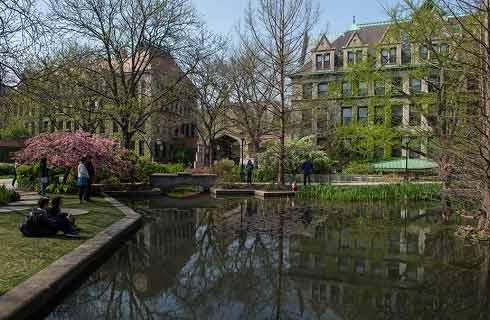课程简介
Why choose this courseThe Sociology and Social Policy joint programme has been taught at University of Wolverhampton for a number of years. The BA Sociology and Social Policy takes an innovative and exciting approach to the social world, with a particular focus on how individuals and communities can bring about the social change needed to tackle social problems such as the climate crisis and social inequalities. Contemporary society faces a number of critical problems, such as climate change, growing social and economic inequalities and the influence of social media on mental health. Exploring solutions to these problems – along with other concerns such as the future of the welfare state and growing food insecurity – are central to this joint programme. Sociology and Social Policy will allow you to focus on the role of social policy and public sociology in bringing about social change, exploring how we – as citizens -can participate in generating solutions to tackle social problems. It will offer you the opportunity to not only understand how social problems come about but to examine the social policy responses to those problems – and ask critical questions about why policies fail.Events such as COVID 19 and climate change, and social movements such as Extinction Rebellion and Black Lives Matter, have shown us how citizen involvement can be crucial in highlighting social problems. However, sometimes interactions between the state and its citizens leads to social change – and shifts in policy direction - and sometimes they do not. Through a diverse range of case studies, shaped by student and teacher expertise and interest, we will reflect on the health, wealth and wellbeing of our society.Drawing on your own interests and lived experiences, we will explore how social theory can empower us to understand the social world and the actions we need to take to bring about change personally, locally, nationally and globally. You will also be given the opportunity to apply your understanding through community-based learning opportunities that are embedded into the course, with modules such as Advocacy in Action, Volunteering in Action and Applied Research. Graduate employability is also embedded throughout the degree programme at The University of Wolverhampton, developing students’ expertise in a range of key employer-identified skills that prepare our students for the workforce of the future. This includes the ability to read data, communication in digitally literate way, and solve complex problems.This joint programme is supported by a teaching team who are actively engaged in community-based research.What's unique about this courseThe Sociology and Social Policy has been redesigned, taking an innovative and exciting approach to the social world, with a particular focus on social change.Through placements, visits and guest speakers, you will have opportunities to engage with voluntary and public sector organisations, and the wider community, to embed your learning.This joint programme is supported by a teaching team who are actively engaged in community-based research.What happens on the courseThe Sociology and Social Policy programme aims to examine the relationship between government, society and citizens, and how those relationships impact on our lives. We will be asking questions about how the study of social theory and social policy can help us understand why we have increasing levels of social inequality and exclusion in our society, with persistent disparities in the life chances of people from ethnic minorities, lower socio-economic classes and those with disabilities or mental health problems.
展开







 预科
预科 奖学金
奖学金 实习机会
实习机会 在校学习
在校学习 跨境学习
跨境学习 校园授课-线上开始
校园授课-线上开始 在线/远程学习
在线/远程学习













 兰卡斯特大学
兰卡斯特大学

 斯旺西大学
斯旺西大学

 伦敦大学伯贝克学院
伦敦大学伯贝克学院

 科廷大学学院
科廷大学学院



 奥克兰理工大学
奥克兰理工大学









